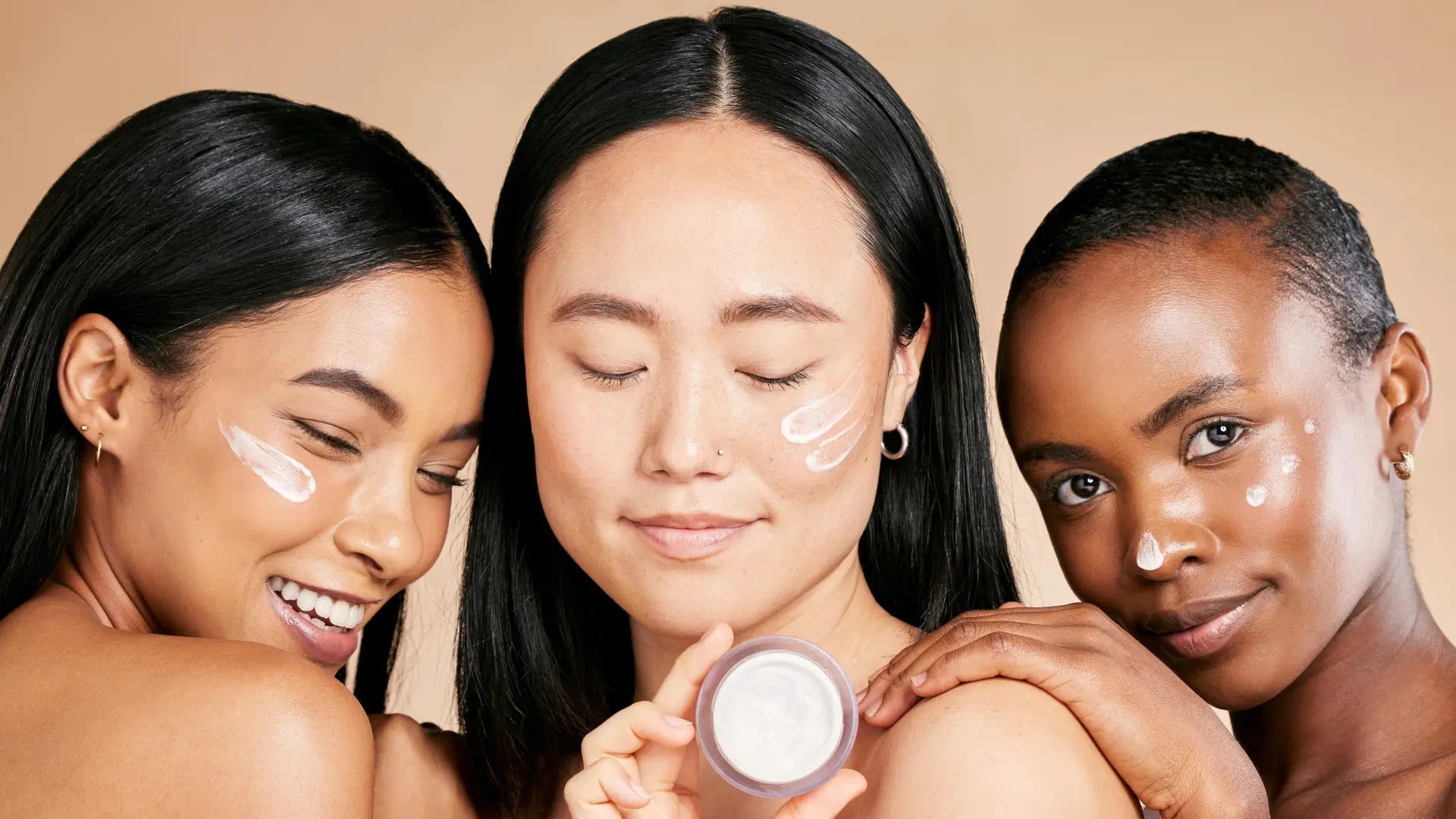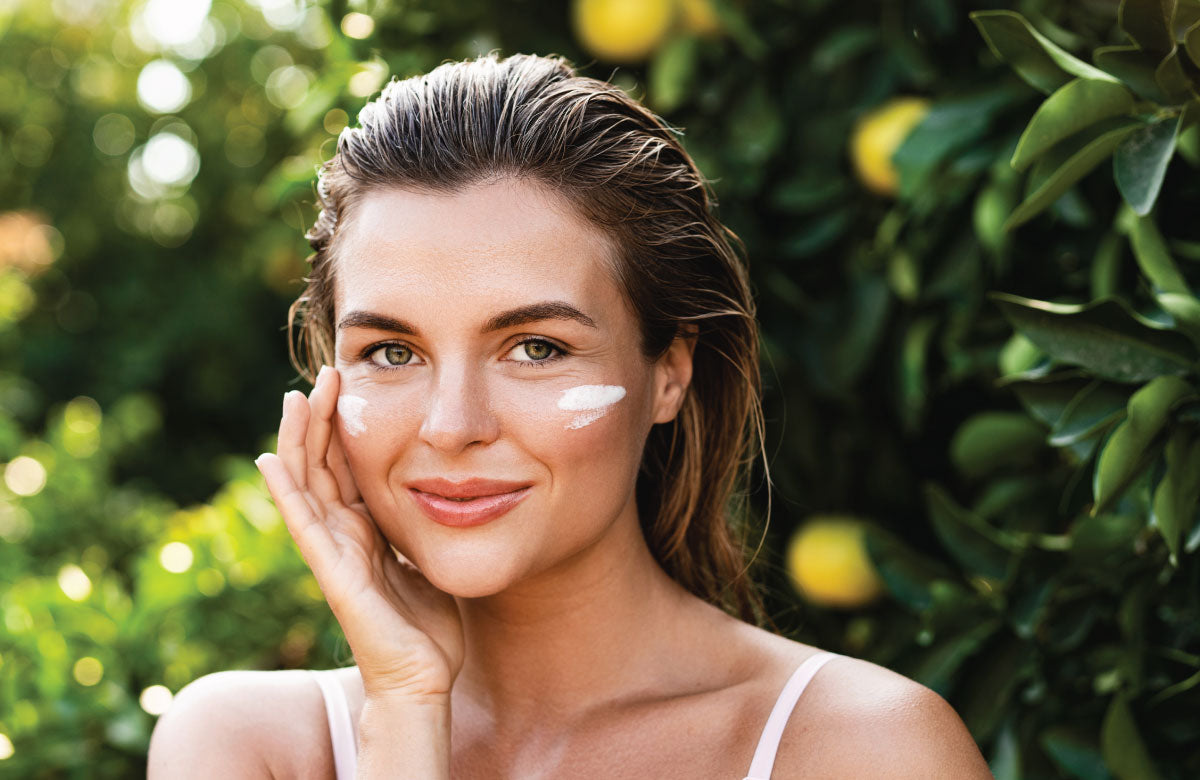Top 10 Skincare Tips for Glowing and Healthy Skin

Taking care of your skin should be a top priority, whether you're trying to maintain a youthful glow or improve problematic areas. With the right routine, anyone can achieve healthy, glowing skin.
Here are the top 10 skincare tips to keep your skin looking its best:
1. Cleanse Your Skin Regularly
Cleansing is the basis of every skincare regimen. Proper cleaning eliminates debris, oil, and pollutants that build up on the skin during the day. Always select a cleanser appropriate for your skin type. For example, if you have dry skin, use a moisturizing cleanser, whilst people with oily complexions might use a mild foamy cleanser. Don’t forget to cleanse before bed to remove makeup and prevent clogging
Tip: Avoid using hot water when washing your face, as it can strip your skin of its natural oils.
2. Moisturize Daily
Moisturizing is essential to maintain your skin’s hydration and barrier. It keeps your skin soft, smooth, and prevents dryness. Even if you have oily skin, moisturizing is still important; opt for a lightweight, oil-free moisturizer if necessary.
Tip: Apply moisturizer immediately after cleansing while your skin is still damp to lock in the hydration.
3. Use Sunscreen Every Day
Sun damage is one of the leading causes of premature aging, wrinkles, and hyperpigmentation. To protect your skin from harmful UV rays, use a broad-spectrum sunscreen with at least SPF 30 every morning, regardless of the weather.
Tip: Don’t forget to reapply sunscreen throughout the day, especially if you're sweating or swimming.
4. Exfoliate Weekly
Exfoliation removes dead skin cells, giving your skin a fresh and glowing appearance. Exfoliating once or twice a week helps prevent clogged pores and encourages cell turnover. Be careful not to over-exfoliate, as it can irritate your skin.
Tip: Use a gentle exfoliant (physical or chemical) that suits your skin type to avoid irritation.
5. Hydrate from the Inside Out
Drinking plenty of water is key to maintaining healthy, glowing skin. Dehydration can lead to dryness, dullness, and fine lines. Aim for at least 8 glasses of water a day to keep your skin hydrated from within.
Tip: Add hydrating foods like cucumbers, watermelon, and oranges to your diet for an extra boost.
6. Get Enough Sleep
Your skin repairs itself while you sleep, so getting enough rest is crucial for a healthy complexion. Aim for 7-9 hours of sleep per night. Lack of sleep can lead to puffiness, dark circles, and a dull complexion.
Tip: Try using a silk pillowcase to reduce friction and minimize the risk of skin irritation while you sleep.
7. Eat a Balanced Diet
What you eat can affect your skin’s health. A balanced diet rich in antioxidants, vitamins, and minerals can promote a youthful, radiant complexion. Incorporate fruits, vegetables, whole grains, and healthy fats into your diet.
Tip: Foods rich in vitamin C (like citrus fruits) and vitamin E (like nuts and seeds) are great for skin health.
8. Avoid Touching Your Face
Touching your face throughout the day can transfer bacteria, dirt, and oils from your hands to your skin, which can lead to breakouts. Make it a habit to keep your hands away from your face, and wash your hands regularly.
Tip: Clean your phone screen frequently, as it can also transfer bacteria to your skin.
9. Use Skin-Specific Treatments
Incorporating serums, masks, and treatments into your routine can target specific skin concerns. Whether you’re dealing with acne, pigmentation, or fine lines, there's a product for that. Look for products with ingredients like retinol, hyaluronic acid, or niacinamide for added benefits.
Tip: Introduce one product at a time to avoid overwhelming your skin and watch for any reactions.
10. Be Consistent
Consistency is key when it comes to skincare. Results take time, and the more regular you are with your routine, the better the outcome. Stick to a skincare regimen that works for your skin type and concerns, and give products time to show their effects (usually 4-6 weeks).
Tip: Don't be swayed by new trends—find a routine that suits your skin and stick with it.
Conclusion
Healthy, glowing skin requires more than just expensive products or fancy treatments. It’s about creating a consistent, simple skincare routine that nourishes your skin from the inside out. By following these 10 skincare tips, you’ll be on your way to a clearer, smoother, and more radiant complexion in no time. Remember: good skincare is a marathon, not a sprint. So, be patient, stay consistent, and enjoy the results!
FAQ’s
1. How often should I cleanse my face?
It’s recommended to cleanse your face twice a day—once in the morning and once before bed—to remove dirt, oil, and makeup. If you have sensitive skin, you can cleanse once in the evening and use a gentle face mist in the morning.
2. Can I skip moisturizing if I have oily skin?
No, moisturizing is important even if you have oily skin. Look for an oil-free or lightweight moisturizer that won’t clog your pores but will keep your skin balanced and hydrated.
3. What’s the difference between physical and chemical exfoliants?
Physical exfoliants use small grains or particles to manually slough off dead skin cells, while chemical exfoliants use acids (like AHAs or BHAs) to dissolve dead skin cells. Both are effective, but chemical exfoliants are often gentler and less abrasive.
4. How do I know my skin type?
You can determine your skin type by observing how your skin behaves after cleansing. If it feels tight or flaky, you likely have dry skin. If it becomes shiny or oily after a few hours, you have oily skin. Combination skin tends to have both dry and oily areas, and normal skin feels balanced.
5. How long should I wait before applying sunscreen after skincare products?
You can apply sunscreen immediately after your skincare routine. Just make sure your moisturizer or other products have fully absorbed into your skin before applying sunscreen to ensure maximum protection.

Reviewed By
Dr. Sapna Kangotra
Senior Ayurveda Doctor




Comments